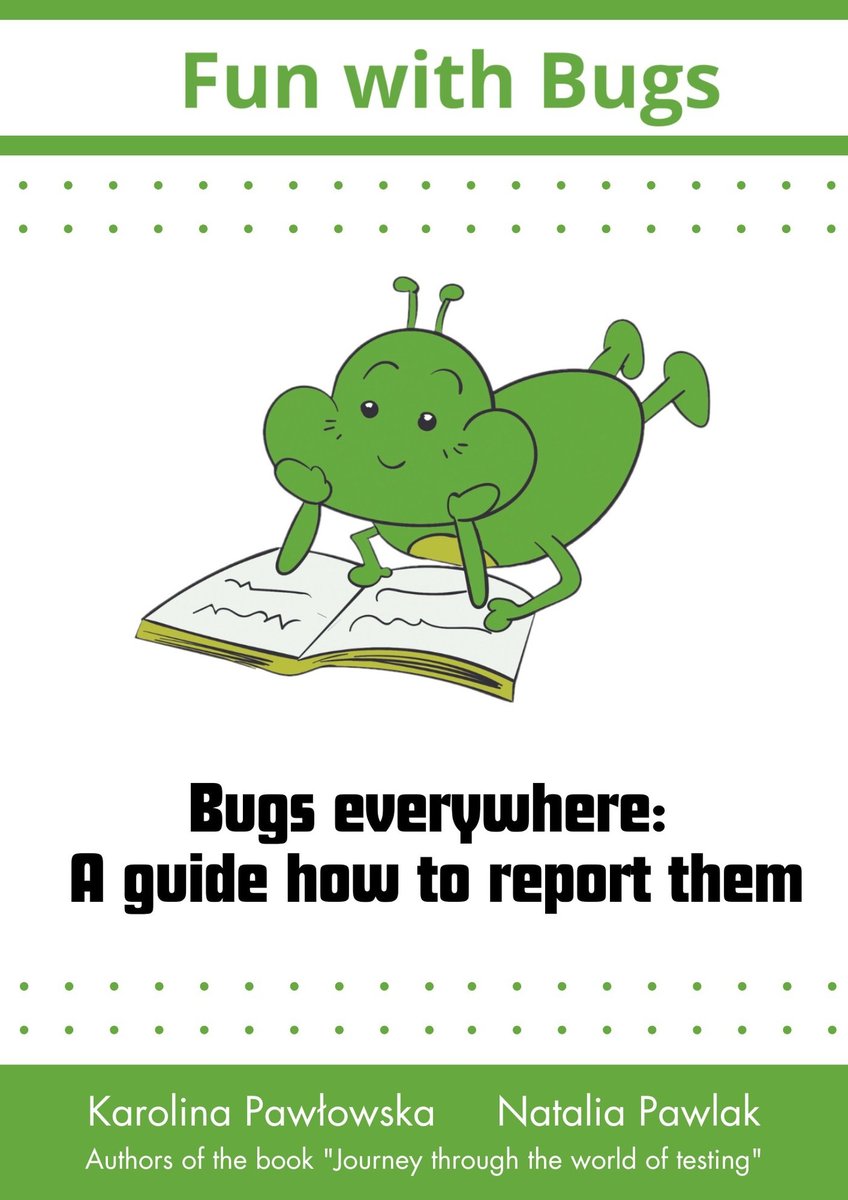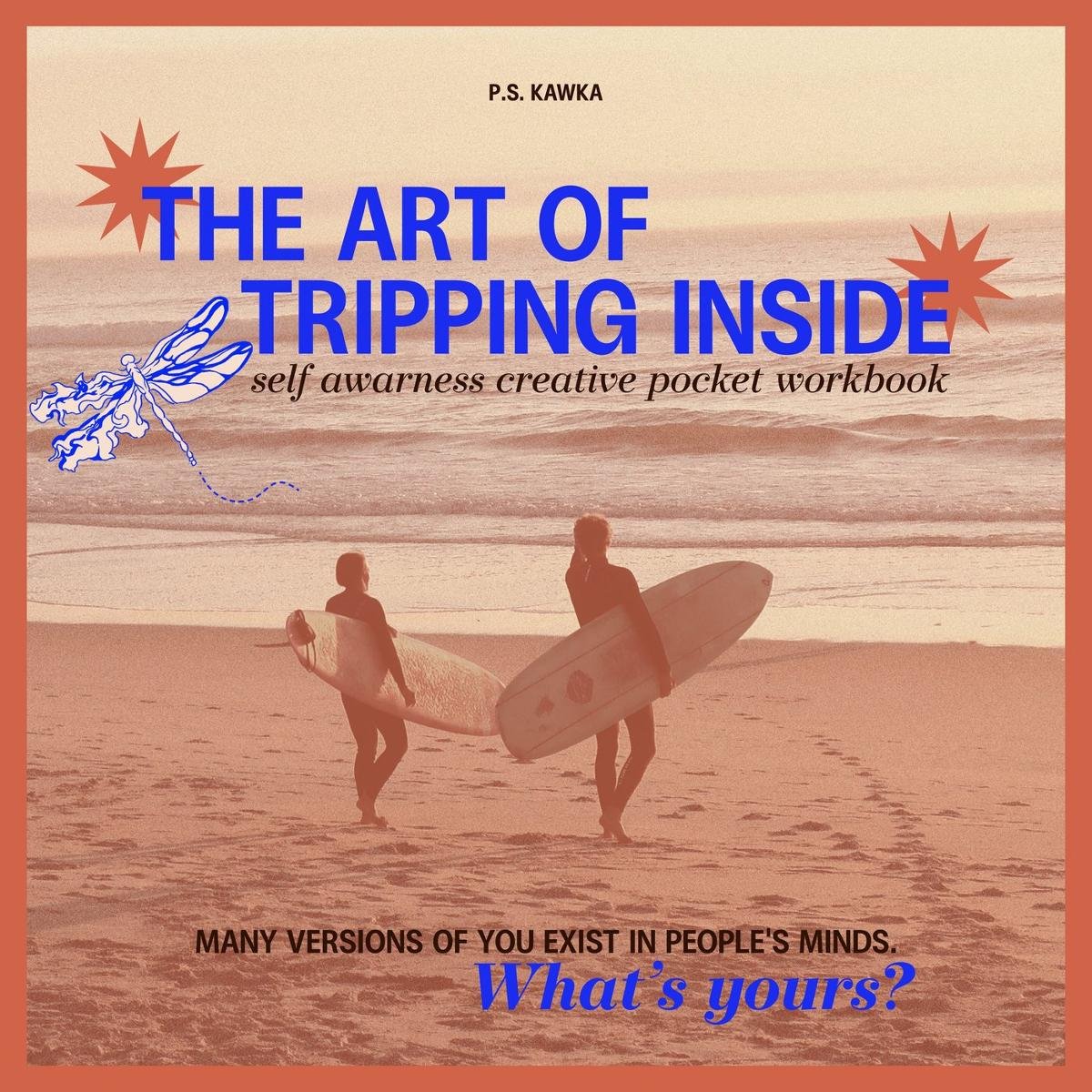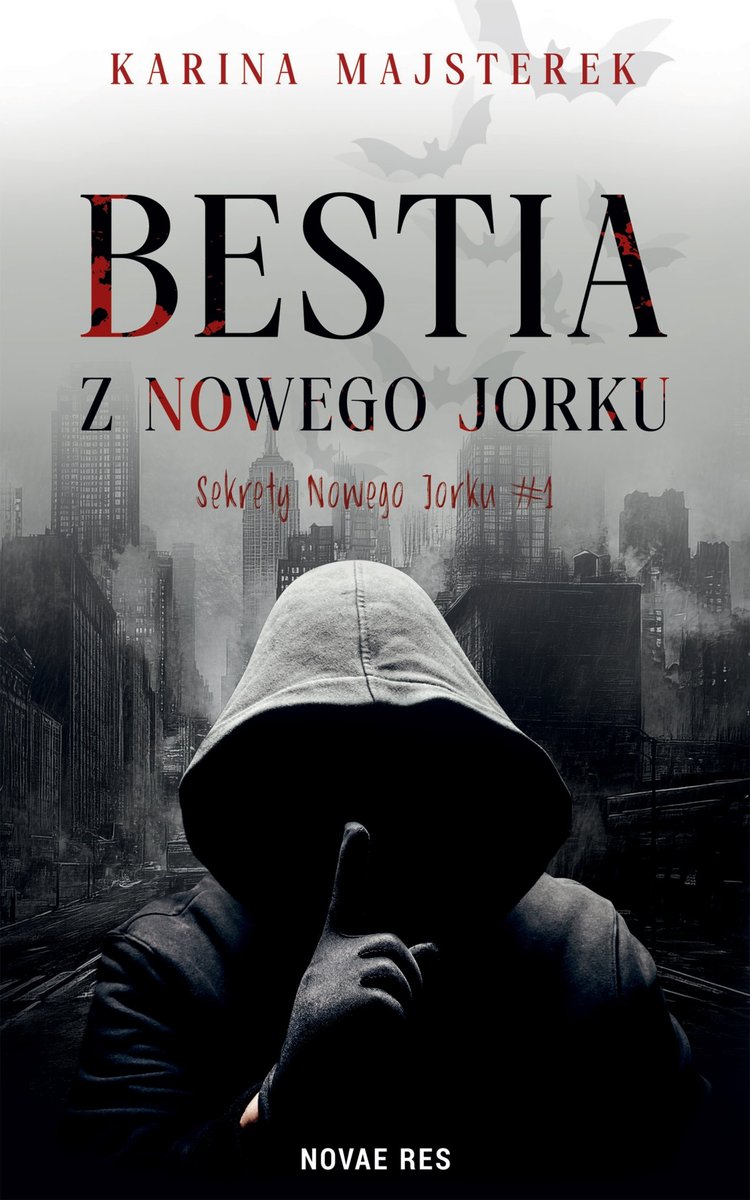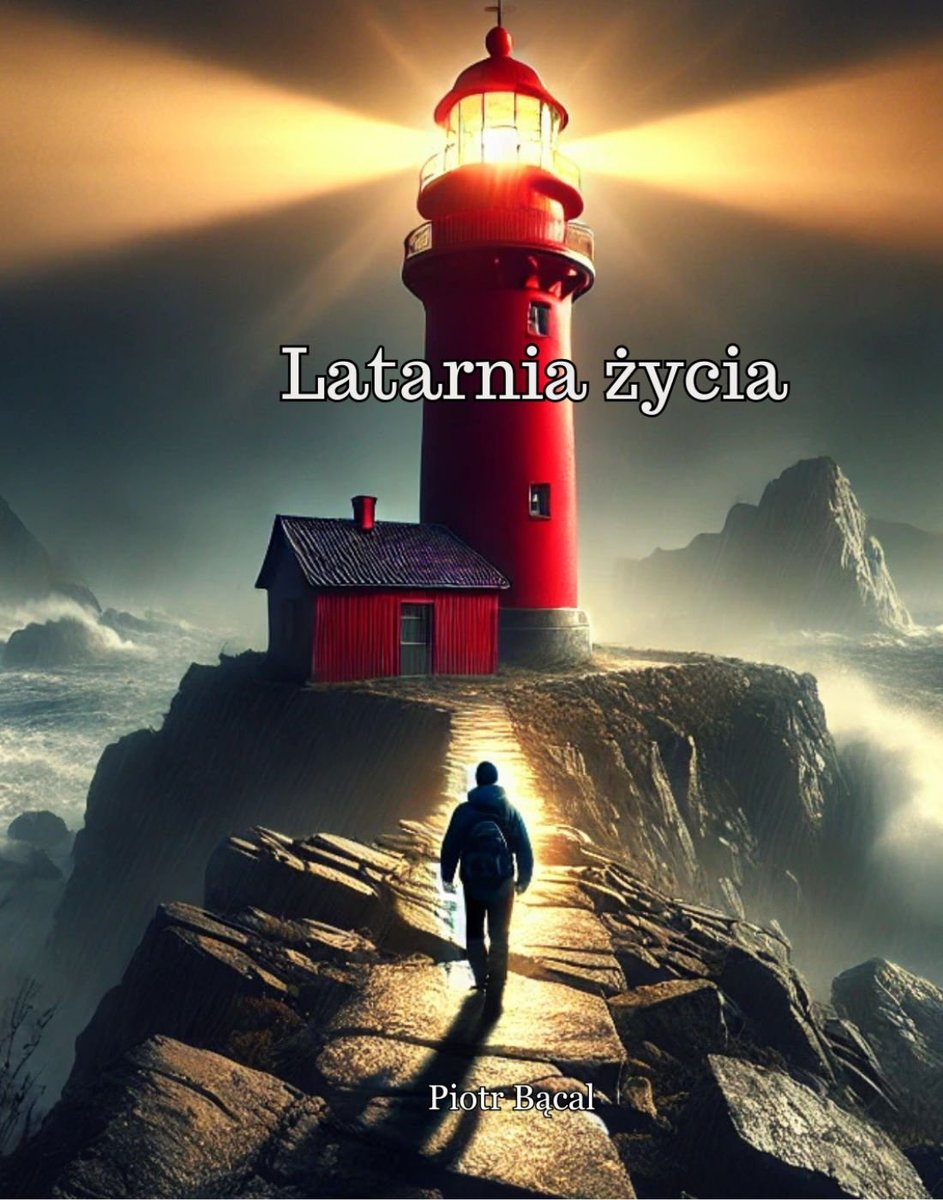angol
bank slow
| Szczegóły | |
|---|---|
| Tytuł | angol |
| Rozszerzenie: | |
angol PDF - Pobierz:
Pobierz PDF
angol - podejrzyj 20 pierwszych stron:
Strona 1
SPIS TREŚCI
Zadania tekstowe 7
Rozpoznawanie struktur gramatyczno-leksykalnych 55
Test luk sterowanych 56
Stosowanie struktur gramatyczno-leksykalnych 85
Słowotwórstwo 106
Transformacje - parafraza 124
Test luk otwartych 149
Tłumaczenie zdań na język angielski 158
KLUCZ Odpowiedzi do zadań 181
-5-
Strona 2
TEKST 8 Przeczytaj tekst. Po każdym akapicie zdecyduj, czy zdania podane
poniżej wyrażają prawdę - ‘true’, czy fałsz - ‘false’.
Evolution has a sense of humor. Given enough time and enough mutation, competition, selection,
pressure and hybridization the forces of nature can turn a lizard into a Chicken From Hell.
Scientists have just discovered a freakish, birdlike species of dinosaur - 3 metres long, over 200
kilo, with a beak, no teeth, a bony crest on top of its head, murderous claws, strong fighter arms, tall
legs, a thin tail and feathers sprouting all over the body. Officially, it’s a member of a group of
dinosaurs called oviraptorosaurs, unofficially nicknamed the Chicken From Hell.
1. According to scientists the new type of dinosaur that they have discovered
is really strange and cannot be compared to any dinosaur found before.
This dino-bird is not literally a chicken, or even a bird. It’s definitely a dinosaur, and it lived at the
end of the Cretaceous period, from about 68 million to 66 million years ago. ‘It would look like
a really absurd, stretched-out chicken and it would have been a cross between a chicken and a lizard,’
say the paleontologists who excavated the fossils.
2. The paleontologists were surprised to discover a dinosaur that would have
looked like two species combined together.
The fossils of three specimens of the new dinosaur were found in a sedimentary rock layer known as
the Hell Creek in North and South Dakota. The formation inspired the nickname. But there’s also
the matter of appearance: It’s a disturbing beast. It looks like it could stomp you, rip you to pieces or
simply peck you to death.
3. The nickname of the Chicken From Hell derives from the scary body
features of the new dinosaur.
It’s a big animal, the biggest oviraptorosaur species found in North America. The creature brings to
mind a huge flightless bird, such as an ostrich or emu. The weird crest on its head, which resembles
half a dinner plate turned vertically, looks like that of a cassowary. The new dinosaur is loaded with
biological accessories and adaptations, as if evolution had been inspired by a Swiss Army knife.
4. Scientist have figured out that the new dinosaur would have been a fierce
creature that attacked its prey from air.
In The Origin of Species Charles Darwin wrote of the ’grandeur of natural selection, through
which endless forms most beautiful and most wonderful have been, and are being, evolved’ — but he
never saw this animal from a nightmare.
- 15 -
Strona 3
TEKST 17 Przeczytaj tekst, z którego usunięto zdania. Wybierz takie, które
w najbardziej logiczny sposób uzupełnią kontekst artykułu.
The mythic belief in dolphins as supernatural creatures has been reinforced across the ages
from the first written records of encounters with these animals. .............. (1)
Strong belief in extraterrestrial powers shaped ancient peoples’ minds.
In ancient times, dolphins were closely linked with gods.
Delphinus was a favourite messenger of Poseidon, who repaid him for his loyalty by placing
an image of a dolphin in the stars. Aristotle was the first to recognise that dolphins are
mammals.
The perception of dolphins as lifesavers is connected with beliefs that they possess
special powers.
Dolphins’ natural skills and qualities place them among the most intelligent
creatures and the quickest learners.
.............. (2) The ancient Celts attributed healing abilities to dolphins, as did the Norse.
Throughout time, people as far apart as Brazil and Fiji have traded in dolphin and whale body
parts for medicinal and totemic purposes.
Despite being attributed with supernatural features, there has been a number of
well-substantiated modern reports of dolphins coming to the aid of humans.
On a number of occasions dophins have been observed as they broke up
sharks attacks by means of cooperative team defence.
.............. (3) In 2007, for example, a pod of bottlenose dolphins saved the surfer Todd Endris,
who had been attacked by a great white shark off Monterey, by forming a protective ring
around him.
The intelligence and sophistication of dolphins is not just mythological. Decades of scientific
research has confirmed that they possess large and highly elaborate brains, demonstrable
self-awareness, complex societies, even cultural traditions.
Nevertheless, dolphins should always be perceived as wild creatures capable
of an attack when in danger.
For the last decade dolphin therapy has been largely publicised by the media, who
reported several successful case stories.
.............. (4) The aim of the treatment is to increase sensory activities. Programmes take
place in a pool with captive or semi-captive dolphins and therapists who assist the children
who are asked to swim, touch, feed or pat the animals. Therapists work on specific areas such
as speech, behaviours and motor skills.
- 26 -
Strona 4
Dolphin therapy is not a cure but it can help alleviate certain symptoms associated with
children conditions by enhancing their healing process. Samples of blood were analysed
before and after the therapy, and results showed that after swimming with dolphins there is
a change of hormones, endorphins and enzymes. .............. (5)
Children’s love of dolphins is not unrequited. The mammals, too, seem to treat
children in a special friendly manner.
It’s clear that encounters with dolphins evoke a deep emotional response and
trigger the release of deep feelings and emotions.
It is believed that children are more responsive to the therapy because they play in a pleasant
environment, they are motivated to complete the tasks, they are happy and therefore they
pay greater attention to the therapists' work.
For others, the healing principle is similar to that of sound therapy: rhythm and vibrational
sound facilitate an altered mood. .............. (6)
Thus, swimming with dolphins can create physiological cell and tissue change in
the body.
Before they can play the role of therapists’ assistants dolphins undergo a special
training.
Dolphins have a natural sonar they use to emit ultrasound waves to localise things and to
communicate. This process is called echolocation. Sounds emitted by dolphins are so intense
that that they can create holes in the molecular structure of fluids and soft tissues. It is
believed that dolphins' signal frequencies can have a profound effect on the human brain by
modifying the brainwave activity and influencing the mood in a positive way.
- 27 -
Strona 5
TEKST 26 Przeczytaj fragment tekstu, a następnie wybierz odpowiedni tytuł
dla każdego akapitu.
A. Living the life of a gladiator.
26.1 B. Life and death on the Roman arena.
Ancient Roman gladiatorial combat was famed for its brutality and spectacle, with man and
beast alike fighting for glory, freedom and, ultimately, survival. Throughout the Roman Empire,
gladiatorial combat was one of the most watched and celebrated forms of popular
entertainment. Men, women and animals shed each other’s blood in a fierce arena where,
more often than not, there were only ever two basic choices: to kill or be killed.
A. From religious rituals to official feasts.
26.2 B. Glorification of the victorious emperor.
Roman gladiatorial combat emerged in the 3rd century BC in Campania, southern Italy, as part
of funeral practices, with combat-simulated or not – put on as part of commemorations. It quickly
evolved, growing in both stature and lavishness with increasingly large celebrations. By the 1st
century it peaked with the adoption of gladiatorial combat into state-held games – extravagant,
month-long celebrations put on for victories, coronations and religious dates. This upscaling in
the size of the events led to the creation of dedicated gladiatorial schools, where slaves,
convicts and prisoners were forced to fight.
A. The way of a gladaitor.
26.3 B. Slavery in ancient Rome.
The gladiator schools were run by a school head who would acquire potential gladiators, then
house and train them over a series of months or even years. The school would then either lease
or sell gladiators to the state or private families. Nobles often invested in them and were
encouraged to as it was seen as an acceptable business for the upper classes. Interestingly,
while it was deemed proper for the aristocracy to own gladiators, the heads of gladiatorial
schools were perceived as lowly members of society, with most referred to as nothing more
than common slavers.
A. The origins of the gladius - a gladiator’s sword.
26.4 B. Variety for the show.
Gladiator training was equally complex. Far from each person solely being trained to fight with
a simple sword and shield, in fact individuals were categorized into a number of gladiatorial
types, each differing in arms, apparel, armour, accessories and technique. Indeed, records show
that there were over 20 different kinds of gladiator, ranging from retiarius net fighters, through
- 44 -
Strona 6
to cestus fist-fighters and on to dimachaerus dual-weapon fighters, among many others.
Importantly, specific gladiators were paired against others of their same class, or those from
one that complemented them, the latter designed to provide greater entertainment.
A. Mastery of the arena construction.
26.5 B. Scenarios for the bloodthirsty crowd.
Upon arriving at an arena, gladiators were stored in cells near to or under the playing field.
Here they could prepare for their upcoming match, select their weapons at an armoury, and
then be transported via a walkway or elevator to the arena proper. Matches varied in
complexity, ranging from straight gladiator-on-gladiator bouts, which could end in death for
the loser if so decreed by the crowd or emperor, gladiator-on-animal fights, or historically
inspired team fights, where groups of gladiators would attack each other as a part of war or
battle re-enactment.
A. More than a slave slaughter.
26.6 B. The weight of the emperor’s thumb.
Importantly though, gladiatorial games did not simply involve gladiators fighting one another.
On the contrary, a vast array of events and activities were held within the arena, ranging from
animal hunts to musical recitals, theatrical plays to straight-out executions, announcements
and raids into the arena by the emperor himself.
- 45 -
Strona 7
ZADANIE 1 Przeczytaj przykłady. Wybierz właściwą odpowiedź a, b, c lub d,
aby otrzymać logiczne i poprawne gramatycznie zdanie.
1. It doesn't make much …………………… to send a message in a bottle.
a) right b) sense c) well d) reason
2. It's not …………………… asking Peter's advice. He knows nothing.
a) use b) advantage c) point d) worth
3. Mr Roth was the first to …………………… for the vacant position.
a) apply b) enquire c) order d) demand
4. Uncle Ross is a …………………… smoker. He smokes two packets a day.
a) habitual b) continual c) frequent d) permanent
5. Last night, the poor woman …………………… birth to her eighth child.
a) made b) delivered c) gave d) took
6. Once you leave, who's going to be in …………………… of the Public Relations
department?
a) power b) charge c) rule d) responsibility
7. As a child I was always …………………… for what my younger brother had done.
a) complained b) disapproved c) faulted d) blamed
8. It's biting cold outside. We'd …………………… you to stay and play at home.
a) rather b) better c) prefer d) more
9. I didn't switch off my mobile phone just in …………………… I was looked for by
my boss.
a) case b) way c) occurrence d) event
10. This marvellous mountainous landscape …………………… me of the village I
grew up in.
a) memorises b) reminds c) resembles d) remembers
11. As …………………… as I know, this marble statue is not genuine.
a) wide b) long c) far d) near
12. It's the only map we have. …………………… that you don't lose it.
a) Think b) Mind c) Bother d) Regard
13. I didn't see the whole occurrence. I just managed to catch a ……………..…… of it.
a) glimpse b) look c) sight d) view
- 56 -
Strona 8
14. Does it make a big …………………… if I pay you in dollars instead of pounds?
a) variation b) contrast c) opposition d) difference
15. Take Dorothy's advice. She's got a lot of …………………… sense.
a) common b) real c) popular d) wide
16. I suggested ………………………. to this letter as soon as possible.
a) Mark to reply b) to Mark replying
c) that Mark reply d) replying by Mark
17. By next Sunday, our children ………………………. at the camp for ten days.
a) will have been staying b) will be staying
c) will have been stayed d) will stay
18. We'd rather ………………………. the wire. It may be live.
a) that you don't touch b) you shouldn't touch
c) you not to touch d) you didn't touch
19. The boy cried because he ………………………. to play with the other children.
a) hadn't been allowed b) hadn't been allowing
c) hadn't allowed d) hadn't to allow
20. All of the candidates ………………………. their physical strength.
a) were making display b) made to display
c) were made to display d) were made display
21. Neither she nor he ………………………. the police what had really happened.
a) did tell b) told
c) did not tell d) were told
22. Look at the sky. It's ………………………. soon.
a) unlikely that will rain b) unlikely to rain
c) unlikely raining d) likely not to rain
23. Susan is always so extravagant. She ………………………. a celebrity.
a) behaves to be b) behaves as if she were
c) behaves that she is d) behaves being
24. Would you mind ………………………. at your drawings for a while?
a) me to let the students to look b) that I will let the students look
c) my letting the students look d) to me letting the students look
- 57 -
Strona 9
ZADANIE 2 Przeczytaj fragment artykułu. Wybierz właściwe słowa, aby
otrzymać logiczny i poprawny gramatycznie tekst.
1
People who suffer/hurt (1) psychologically from body image issues and feel the need to lose
a lot of weight quickly are the ones to usually try extreme dieting. The main tenet of extreme
dieting is the severe limiting of calorie outcome/intake (2). Because of the severity of the
limiting, extreme diets are almost the same thing like/as (3) starvation, differing only slightly.
Resulting/Due (4) to this perilous approach, even people who go on extreme diets do so with
the understanding that it should only be at the most/best (5) a very short-term commitment.
Ironically, people who go on an extreme diet with the faith/belief (6) that they can lose weight
quickly are in to/for (7) a shock because extreme diets have the opposite effect. Extreme diets
cause a slowing down of your body's metabolic rate. What results/occurs (8) from that is that
more weight is gained after the extreme diet is ended.
2
On September 19, 1991, one of the most extraordinary discoveries of our century took/had (1)
place in Austria’s Otzal Alps, when two hikers discovered an ice mummy preserved by freezing
/having frozen (2). The analysis of samples of organic tissues has performed/determined (3)
that the Ice Man lived between 3350 and 3100 B.C. The Ice Man died approximately 5200 years
ago. With/At (4) death he was between 40 and 50 and suffered from a number of medical
conditions. He turned/adjusted (5) into a mummy accidentally almost immediately by the
freezing weather conditions that transformed him into the Ice Man. The Ice Man's possessions
have given scientists a better outlook/insight (6) into life during the Neolithic Age in Europe.
Perhaps the most valuable possession, referring/according (7) to many scientists, was his
“medicine kit,” containing/involving (8) a lump of a birch fungus used as a laxative and as
a natural antibiotic.
3
Enjoyment is what drinking wine is all about. However, the more you know, as/the (1) easier it
becomes to select the right wines for you or your guests. Wine is basically grape juice to that/
which (2) yeast has been added causing it to ferment and produce alcohol. Alcohol is
flavourless, so there must be something more to/in (3) wine than this. Many of the secrets of
wine lie/stand (4) within the grape. Its pulp is a sugar solution which contains the things that
give a wine its fruity flavour. In a dry wine, most of grape's sugar has been converted/replaced
into (5) alcohol. In a sweet one, more sugar is left. This can be felt on the edge/tip (6) of the
tongue. The pulp also contains acidity which gives the wine ''crispness'' that makes the lips/
mouth (7) water. The skin contains flavour and tannin which gives a wine firmness. White
- 72 -
Strona 10
ZADANIE 4 Przeczytaj fragment artykułu. Wybierz właściwą odpowiedź a, b,
c lub d, aby otrzymać logiczny i poprawny gramatycznie tekst.
Tekst 2
If any group of people .......... (1) for the term "a lost tribe" it is the Sentinelese. Like other
Andaman island natives, they have managed to live for thousands of years near one of the
most ancient sea routes while ..........(2) any influence from outside civilizations. Andaman
islanders respond with intense hostility at any ..........(3) of outside contact, hurling arrows
and stones at any unlucky visitor ..........(4) their shores.
Early Arab and Persian documents report that Andaman islands were ..........(5) by cannibals,
which was an exaggeration probably ..........(6) from the ferocity of attacks with which these
travelers were greeted. Later Indian and European explorers steered ..........(7) off these
islands to avoid the hostile inhabitants. Things began to change during British colonial rule in
India and Burma. One by one, local tribes slowly ..........(8) away with their isolation, the
latest being the Jarawa, who ..........(9) the first peaceful contact with the Indian government
only in 1997.
The Sentinelese, the inhabitants of a small North Sentinel island, are the only enduring tribe
in the Andaman chain to ..........(10) their isolation. The current policy of the Indian
government is to leave the islanders ..........(11) and access to North Sentinel island is strictly
..........(12) .
1. a) volunteers b) suits c) qualifies d) entitles
2. a) refraining b) avoiding c) evading d) preventing
3. a) attempt b) trial c) probation d) reach
4. a) arriving b) appearing c) aiming d) approaching
5. a) dwelled b) inhabited c) resided d) stayed
6. a) referring b) inventing c) originating d) inspiring
7. a) far b) clear c) away d) free
8. a) did b) broke c) ran d) made
9. a) managed b) created c) fixed d) established
10. a) maintain b) insist c) approve d) remain
11. a) lonely b) apart c) alone d) spare
12. a) illegal b) forbidden c) criminal d) unlawful
- 77 -
Strona 11
ZADANIE 2 Przeczytaj zdania i wybierz poprawne przyimki.
1. 'I need your support. Will you back me up/for ?' 'Of course, I will. You know you can
count with/on me, Jim.'
2. For/In spite of not feeling up/in to the challenge, Mary made to/up her mind to
act at/in the school drama.
3. Contrary for/to what is written about us in/at the press, I must assure you that
we've done nothing to be ashamed with/of .
4. Michael is allergic for/to pollen. Every year on/in springtime, he suffers at/from
terrible burning in his eyes.
5. According to/with the Prime Minister, increase at/in the number of people
dissatisfied with/from the recent economic situation has resulted by/from the
mistakes the ruling party have made.
6. The Johnsons take great pride on/in their son's achievements. George is famous
for/with his scientific publications.
7. There's no point for/in asking on/for my opinion. I'm not familiar at/with the
recent political events in South Africa.
8. I can't say I approve of/to all the resolutions you have put into/forward in your
project. But out/by and large, you've done a good job.
9. David, my husband, prefers walking in the mountains from/to lying on the beach,
which is why we always find it hard to agree for/on our holiday destination.
10. To avoid getting into/at trouble, young people should be taught to beware from/of
drug dealers.
11. The man claimed he had nothing to do with/to the robbery and that he found
himself in that place over/by accident.
12. Before researchers find a solid cure on/for cancer, thousands of people will have
died of/at that horrible disease.
13. Owing by/to Rosy's thorough education and good knowledge in/of foreign
languages, she has been accepted for all the jobs she has applied for/at .
14. The environment is subject to/with devastation on/through account of human
destructive activity. The impact that we exert for/on nature has contributed to/in
extinction of many species and endangerment of many others.
15. 'Who have you been introduced with/to so far?' 'I am already acquainted at/with
Mr Byron - the one who is on/in charge of the sales department.’
16. Mrs Abercrombie is so proud for/of her children’s achievements in/at school.
17. Write up/down your address, please. I don’t have memory on/for numbers.
- 92 -
Strona 12
18. ‘Who is with/in authority here?’ ‘I am responsible with/for keeping things in/at
order.’
19. ‘Do you still depend to/on your parents?’ ‘No, I earn my living at/on my own’.
20. ‘How much money did you spend for/on the delivery?’ ‘Nothing. It was free by/off
charge.’
21. Karen has been longing of/for her family and town. It’s been six years since she left
for/into Brazil.
22. This little village reminds me of/to the place where we went at/on our honeymoon.
23. I took your diary on/by mistake. I do not take much interest in/for your private
matters.
24. ‘What was the cause of/for the explosion?’ ‘What explosion? I am not familiar
with/to the story.’
25. I’m a little nervous because I am not used with/to working on/under pressure.
26. Although Mrs Parker is bitterly jealous about/of her friends' higher wages in the
company, she refrains from/with making sharp comments.
27. The committee are not for/in favour of quick changes. They say the modifications
should be introduced by/on degrees.
28. The landlord was very generous at/to us. All that we consumed in his inn was
on/from the house.
29. We can't give off/in. Now that we have gone through the most difficult part of the
route we must reach Marrakesh by/at any cost.
30. If you had informed us from/in advance that you wouldn't be giving any lecture, we
wouldn't have gone for/to the trouble of making all the necessary arrangements.
31. Jack's great passion for/in pottery seems odd to his friends, but the boy looks at/on
it as an absorbing hobby.
32. What unavoidably gets with/on my nerves is Frank’s tendency towards/within
criticizing everything and everyone.
33. The football star has finally opted on/for holidays in a secluded place where he
hopes to hide against/from curious journalists and photographers.
34. All the candidates, except to/for Larry Ames, have scored the required number of
points and have qualified into/for the scholarship abroad.
35. Many customers complain on/about the high prices of food, meat at/in particular.
36. Learning this long definition to/by heart, at first, seemed an impossible task. But,
at/in the end I was successful in/with memorizing it.
37. Instead from/of a long speech at the beginning of the meeting, the chairman limited
himself with/to a short welcome.
- 93 -
Strona 13
Słowotwórstwo - Word formation
ZADANIE 1 Wybierz właściwą formę słowa.
1. Does it make any different / difference to them if we pay by cheque?
2. Tom has lost his confidential / confidence in conventional medicine after many years
of ineffective treatment / treaty.
3. 'What's the longitude / length of this rope?' 'It's six metres long.’
4. Tom stood in defensive / defence of the woman who was attacked by a mugger.
He was later praised and awarded for his bravery / bravado.
5. The president’s apparition / appearance on TV was meant to prove his personal /
personality involvement in the reforms.
6. Don't be unkind / kindly to Alice. She never treats you unfair / unfairly.
7. There's every likeness / likelihood that our next training will be called off because
of unfavourable / disfavoured weather conditions.
8. It’s advisory / advisable to keep this plant in a dark place. It's sensitive / sensible
to light.
9. Make an instance / instant order and you won’t have to pay for the deliverance /
delivery of the furniture set.
10. As a matter of fact, the realisation of the project itself isn't so troubling / troublesome
as the initial conditions we have to accept.
11. The minister doesn’t seem to understand that rising unemployment / unemployed
may lead to more strikes and people’s annoying / annoyance.
12. Who of you was so careless / careful to pass the information to the press? I’ve told
you a thousand times it was confiding / confidential.
13. The attention / attendance at the concert was low because the organizers weren’t
determining / determined enough to give it more publicity.
14. I've never heard about Paul Dobson. He couldn’t have been a historic / historical
character. Or perhaps, my knowledge / know-how of history is so poor.
15. The doctors were helpful / helpless seeing how fast the epidemy was spreading
and how effectual / ineffective their methods of treatment were.
- 106 -
Strona 14
ZADANIE 2 Podaj właściwą formę słowa.
1. Few volunteers decided to take part in the mission knowing how ..............................
(hazard) it might be.
2. Cindy and Mike's close .............................. (friend) finally developed into a deep feeling
and culminated in their .............................. (marry) last year.
3. The boys should receive harsh .............................. (punish). Their ..............................
(behave) at the inauguration ceremony was horrible.
4. Your plan is not .............................. (practice) at all. You should rethink it.
5. Mutual .............................. (accuse) will get you nowhere. You'd better try to find
a more reasonable .............................. (solve) to your conflict.
6. Jason is the most .............................. (truth) person I know. He never tells lies.
7. The Internet ways of .............................. (communicate) seem to be most
.............................. (fashion) among young people these days.
8. The main cause of the current crisis in the party is the deep .............................. (divide)
between its members.
9. None of us was .............................. (success) in convincing the director of the benefits
that our experiment might bring. His .............................. (approve) grew even stronger
when Jack mentioned the possible cost of the venture.
10. Mark's been busy all this week. It's .............................. (doubt) whether he'll come to
see our .............................. (perform) tomorrow.
11. 'Why didn't they react to my .............................. (warn)?'
'They might have misunderstood its discreet .............................. (mean).’
12. Experience, flexibility and .............................. (involve) are the main
.............................. (require) of most employers these days.
13. The detective says he can see a striking .............................. (similar) between these
four .............................. (rob) cases.
14. The .............................. (introduce) of the tax relief will certainly be
.............................. (benefit) to fruit exporters.
15. I'm sorry for hitting you with the ball. It was .............................. (accident), I didn’t
mean to hurt you.
- 107 -
Strona 15
ZADANIE 7 Uzupełnij zdania właściwymi słowami.
1. competitive / competition / competent
a. It was Emily Banks who won the writers’ ........................... . Her story was the best.
b. Harry wasn’t a ............................ worker, that’s why they laid him off.
c. Our products sell really well because their prices are ............................ .
2. annoyance / annoying / annoyed
a. The poor results of the poll caused great ............................ among the party
members.
b. I’m sorry for my reaction. I was ............................ by the lies the witness told.
c. What’s making that ............................ noise? Is it the radio?
3. destiny / destination / predestined
a. The plane never reached its ............................ . It’s still unclear what happened
during the flight.
b. Jenny believes she is ............................ to achieve a great success as an actress.
c. I went to Athens just for a trip. But I met Georgios, married him and stayed there for
good. Such was my ............................ , I guess.
4. appearances / appearance / disappearance
a. The company representative is one of the jobs where personal ............................
matters a lot.
b. The detective claims he has got a good theory to explain the mysterious
............................ of the precious crown jewels from the museum.
c. It makes no sense to judge people only by their ............................ .
5. addicted / addiction / addictive
a. Heroine is one of the most ............................ drugs.
b. I can’t live without chocolate. I eat it every day. I’m ............................ to it.
c. Uncle Ben used to smoke a lot. But he managed to fight the ............................ .
6. economic / economical / economize
a. In times of drought the locals have to ............................ on water supplies.
b. My car does not use much petrol. It’s really ............................ .
c. The new investments are expected to boost the ............................ development
of the country.
- 112 -
Strona 16
7. comforting / uncomfortable / comforts
a. The millionaire had lost his fortune in the casino. For the rest of his days he had to
do without the …………………….. of life.
b. The little patient’s parents were so happy when they heard the ……………………..
news of their daughter’s successful recovery.
c. We felt rather …………………….. in company of the couple who were arguing all the time
during the trip.
8. sympathize / sympathetic / sympathy
a. I did …………………….. with you when you failed your examination.
b. The officers had no …………………….. for the driver who caused the accident.
c. We thanked all our family and friends warmly for being so …………………….. when our
father died.
9. unjust / justice / justification
a. The victims expect nothing more but …………………….. . The guilty must be punished.
b. There’s no …………………….. to your rude behaviour. You shouldn’t have called your
subordinates names.
c. I have a feeling that the verdict is …………………….. . I am going to appeal against it.
10. department / departure / departed
a. The plane is still being serviced. Our …………………….. time has been postponed.
b. This is my favourite …………………….. store. I do all my shopping there.
c. This monument has been put up in memory of all the …………………….. professors and
lecturers of the university.
11. benefactor / beneficial / beneficiary
a. Mr Clay is our team’s …………………….. . Without his financial support we’d never
have a chance to train and take part in tournaments.
b. The millionaire left nothing to his children. His young wife was the only ……………………
of his last will.
c. Products rich in fibre are said to be most …………………….. to health.
12. undeniable / denial / denying
a. That Ramesses III was a great pharaoh is a(n) …………………….. fact.
b. There is no …………………….. that jealousy can ruin a relationship.
c. Your …………………….. makes no sense. I was there and saw what had happened.
- 113 -
Strona 17
ZADANIE 8 Podaj poprawne formy słów w tekstach.
Earthquakes are amongst the most 1) .............................. (destroy) natural disasters.
They usually strike without any 2) .............................. (warn) and result in a great
3) ............................... (lose) of life and enormous demolition of buildings.
In 4) .............................. (add), they may cause devastating landslides or create
gigantic tidal waves which, in fact, are collosal walls of water smashing into
seashores with such force that they are 5) .............................. (able) of destroying
coastal cities. However, the vast 6) .............................. (major) of fatalities and
serious 7) .............................. (injure) come about when buildings collapse.
Millions of people undergo cosmetic surgery every year. Modern plastic surgeons
can alter almost any aspect of physical 8) .............................. (appear), from facial
features to body shape. While some cosmetic surgery is done for 9) ............................
(medicine) reasons, many other procedures are 10) .............................. (volunteer).
For many, having cosmetic surgery is a key to 11) .............................. (confide) levels
and self-image. However, cosmetic surgery should never be taken lightly. The
12) .............................. (probable) of complications exists, just as for any other
operation. Pain is a significant drawback to plastic surgery, and 13) ..............................
(recover) times can be as long as six months in some cases. Sometimes plastic surgery
doesn't produce the 14) .............................. (desire) results for the patient, which is
often a problem with 15) .............................. (expect), not with the skill of the surgeon.
Expecting 16) .............................. (real) results, such as that surgery will make you look
like a movie star can lead to a serious 17) .............................. (disappoint).
It is common 18) .............................. (know) that there is no escape from old age and
it is certain that some of us will retain our mental and physical 19) ..............................
(able) while others will suffer from health disorders. Some of us will be able to climb
mountains whereas others will find it 20) .............................. (achieve) because of
arthritis. To what extent we will be affected with ageing is partially a matter of luck.
It is also largely 21) .............................. (depend) on our genes and in a substantial part
on the way we live our lives.
- 121 -
Strona 18
Transformacje (parafraza)
Transformacje ze słowem kluczem
ZADANIE 1 Wybierz poprawną formę transformacji najbardziej zbliżoną
znaczeniem do oryginalnego zdania.
1. Jack knows how to repair old radios. CAPABLE
a. Jack is capable to repairing old radios.
b. Jack knows capable to repair old radios.
c. Jack is capable of repairing old radios.
2. The young men went sailing despite the bad weather. SPITE
a. Spite the bad weather the young men went sailing
b. The young men went sailing in spite of the bad weather.
c. For the bad weather spite the young men went sailing.
3. If you don’t apologize for your bad behaviour you’ll be punished. UNLESS
a. Unless you apologize for your bad behaviour you’ll be punished.
b. You’ll be punished unless you don’t apologize for your bad behaviour.
c. Apologize unless you will be punished for your bad behaviour.
4. Let’s go to the mountains instead of the seaside. HOW
a. How do we go to the mountains instead of the seaside?
b. Instead of the seaside how if we go to the mountains?
c. How about going to the mountains instead of the seaside?
5. It was in June when I last talked to Janice. SINCE
a. I haven’t talked to Janice since June.
b. Since June I last talked to Janice.
c. Janice and I have last talked since June.
6. The water in the lake was too cold to swim. ENOUGH
a. The water in the lake wasn’t enough warm to swim.
b. The water in the lake wasn’t warm enough to swim.
c. The water in the lake was too enough cold to swim.
- 124 -
Strona 19
7. Albert didn’t get better because he refused to take the antibiotics. WOULD
a. Albert wouldn’t refuse to take the antibiotics, so he did not get better.
b. If Albert refused to take the antibiotics, he would not get better.
c. Albert would have got better if he had not refused to take the antibiotics.
8. Neither Frank nor his brother could read the map well. ABLE
a. Frank and his brother weren’t neither able to read the map.
b. Neither Frank nor his brother were able to read the map.
c. Nor Frank neither his brother could read the map able.
9. My neighbours’ private lives do not interest me at all. IN
a. I don’t interest in my neighbours’ private lives at all.
b. My neighbours’ private lives interest in me not at all.
c. I am not interested in my neighbours’ private lives at all.
10. We have nothing against your children playing in our garden. MIND
a. We haven’t mind against your children to play in our garden.
b. We don’t mind your children playing in our garden.
c. Your children aren’t mind against playing in our garden.
11. It was wrong of Harry to leave the office before the end of the day. SHOULD
a. Harry shouldn’t have left the office before the end of the day.
b. Should Harry leave the office before the end of the day, which was wrong.
c. Harry wrongly should have left the office before the end of the day.
12. What a pity I didn’t ask Mary for a date first. WISH
a. It’s a pity I didn’t wish Mary for a date first.
b. I pitied to wish to ask Mary for a date first.
c. I wish I had asked Mary for a date first.
13. After the accident the driver found it really hard to move. HARDLY
a. After the accident the driver hardly found moving.
b. After the accident the driver was hardly able to move.
c. After the accident the driver couldn’t hardly move.
- 125 -
Strona 20
ZADANIE 2 Przepisz zdania tak, aby jak najwierniej oddawały znaczenie
wyrażone w oryginalnym zdaniu. Użyj podanych słów kluczy.
1. You don’t need to take all these pills. NECESSARY
It ................................................................................................................................
2. Wendy began learning Chinese two months ago. FOR
..................................................................................................................... months.
3. If I were in your place I would notify the police. ADVISE
I .................................................................................................................................
4. Brian is too impatient to wait for his gift so long. ENOUGH
Brian .........................................................................................................................
5. We don’t get on well even though we are a close family. DESPITE
Despite .....................................................................................................................
6. I am not keen on ancient history. INTEREST
Ancient history .........................................................................................................
7. Whose are those luggages? BELONG
Who .........................................................................................................................?
8. I suggest that you write a complaint. ABOUT
..................................................................................................................................?
9. Perhaps, I will start my own business. THINKING
I .................................................................................................................................
10. The players had very little time to celebrate their victory. HARDLY
...................................................................................................................................
11. Promise that you will not exceed the speed limit and I will let you drive. PROVIDED
I will ...........................................................................................................................
12. We pay the company for servicing our machinery. HAVE
We .............................................................................................................................
13. Uncle Joe smoked cigars all his life. ADDICTED
...................................................................................................................................
14. We didn’t have to pay for the food. CHARGE
The food ....................................................................................................................
- 133 -










